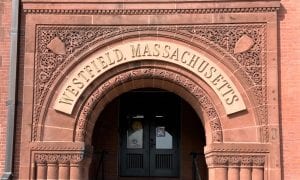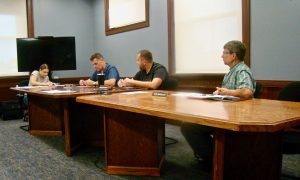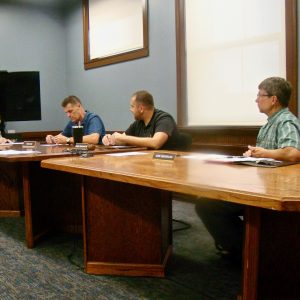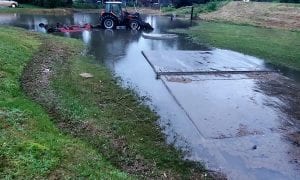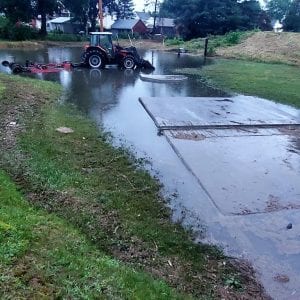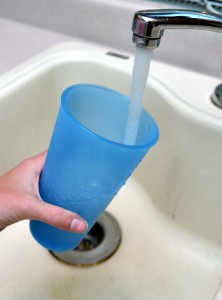 WESTFIELD — The Water Commission voted last night to increase the water rate, effective in the January billing cycle, and to conduct a public informational meeting for city residents and businesses in January.
WESTFIELD — The Water Commission voted last night to increase the water rate, effective in the January billing cycle, and to conduct a public informational meeting for city residents and businesses in January.
The other shoe to drop in this case is that the 10.2 percent increase approved last night is only the first of several rate hikes contemplated over the next few years.
The public meeting was scheduled to coincide with the final rate report being generated by the department’s engineering consultant, Tighe & Bond, for the Water Commission and Water Resource Department. Much of the report deals with the need to increase revenue to fund 14 infrastructure projects, some of which have been deferred for decades, and all needed to efficiently deliver safe drinking water to residents and businesses. The cost of those projects is $15 million over a five-year period that will substantially increase the department’s debt service and the need to increase revenue.
The base equation is that water rates have to generate sufficient revenue to meet the Water Resource expenses for the water division, which have historically has been kept lower by deferring major capital investment and debt.
That income and expenditure formula is also affected by the weather because city residents generally consume more water during dry years, especially summers, than during wet ones. Dry summers generate more water consumption for lawn irrigation and a higher level of outdoor activities and recreation.
Water Resource Superintendent Dave Billips said the department has to break the cycle of cutting budgets every June, then requesting the City Council to approve the use of designated funds to balance the budget every December.
“You can’t budget more than you made in revenue in the last complete fiscal year,” Billips said. “The current fiscal year 2013 budget was based on FY 2011 revenue, which means we had to cut $340,000 in June. Then city auditor recently closed the books on the FY 2012 year, and we had to cut another $140,000.”
“That means there is almost $500,000 less in the budget for the current year,” Billips said.
“Westfield has some of the lowest water and sewer rates in the region,” Billips said. “We know that there will be substantial (rate) increases over the new few years.”
The department’s budget is currently about $5.5 million, but will balloon to over $7 million as debt service increases, meaning that revenue also has to increase, a process that depends on water rates and consumption.
The City Council’s Finance Committee is currently considering a $400,000 transfer from the department’s undesignated fund to its operating account, a transfer that will leave only $100,000 in the reserve account.
“This happens almost every year,” Billips said. “We’re trying to break that cycle.
“Tighe & Bond is projecting that we will need rate increase of 40, 50, 60 or 70 percent over the next few years, so this (10.2 percent increase) is just the beginning,” Billips said.
Commissioner Michael Burns Sr., said that while the board members see the need to increase revenue based on the preliminary Tighe & Bond rate report, members of the public do not have that information.
“I’m not opposed to raising the rates tonight, but I would like a public meeting for the Tighe & Bond presentation,” Burns said. “I just want an educational presentation.”
Commission Chairman Ron Cole agreed with a public education effort.
“I don’t want the public to think this is an arbitrary rate increase,” Cole said. “The rate structure is too low to cover costs.
“What’s increasing is debt service,” Cole said. “How do we structure revenue to cover that? When we look at debt service right now for Main, Broad and Elm streets it’s $2 million for that alone.”
Burns said the timing or the rate increase is “bad.”
Cole Countered that “it’s always a bad time. It’s not a tax, this is a user-based fee, people pay for a commodity that they can control by reducing consumption.”
“We have to do the right thing for the department and city,” Cole said. “If we go into deficit, it will be paid out of the city’s general fund and I don’t want to do that.”
The board voted to set the new rate at $2.95 per 1,000 gallons of water used, up from the current rate of $2.667 per 1,000 gallons of water. That rate increase will add $30 to the average water consumer’s $300 annual water bill.
The planned projects, which will increase the debt service, include several of the most expensive improvements in the near term, such as repairing the Granville Reservoir dam damaged during Tropical Storm Irene ($2.1 million) and replacing the Granville pipeline ($2.8 million), both of which have been launched during the current fiscal year.
The department plans to begin replacing water meters during FY2014 ($3.35 million), replacing or refurbishing the East Mountain storage tank ($1 million) and making improvements to the city’s water treatment plant ($800,000) and the 2015 budget calls for the expenditure of $1.1 million for construction of a new municipal well and associated land acquisition.
Spending linked to city-initiated projects includes the gaslight district initiative now underway ($1.5 million water improvement) and the recently completed Elm Street work ($700,000) to connect the improvements between the Great River Bridge and the Elm/Broad streets projects. Other work projected to begin during the current fiscal year includes $300,000 linked to the construction of the new elementary school at the corner of Ashley and Cross Streets, as well as $60,000 tied to the construction of a new Pochassic Road bridge on Drug Store Hill.
City street improvement projects for FY 2014 will include water line replacement for Western Avenue ($150,000) and Old Town improvements ($550,000) slated for FY 2016 for residential streets off Main Street.
Water Resource Superintendent Dave Billips said that the large number of projects reflects the fact that Water Commission has historically cut construction budgets to reduce the department’s expenditures and the need to increase rates to generate more revenue.
“We’re paying now for 30 to 40 years of neglect,” Billips said. “We should have had a $500,000 construction budget all that time but couldn’t because of limited revenue. Now we’re trying to rebuild the city’s (water) infrastructure.”


